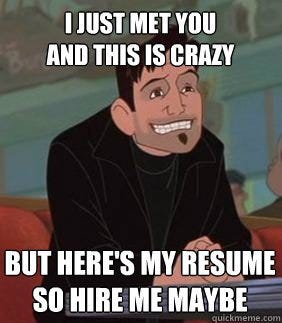This article provides highlights and tips on the hiring process, from personal experience as an interviewer and as an interviewee as well. I believe they could be useful for people who are searching for new challenges, especially in a tech environment.
The amount of opportunities in the market; a double-edged sword
There are tons of companies out there that build great products, with strong culture and motivated teams. They provide flexible working hours, flexible holidays, remote work and perks, decent salaries and of course the chance to grow professionally.
That amount of companies and the opportunities are a double-edged sword and someone who is looking for a job should make sure that the product, team and company culture are the ones that fits them. If that’s not the case, a strong philosophy opposite to yours, can make you have a really hard time at work, when you could be in another place, and in your place to be another person that would be happier.
The purpose of interviewing and it’s two-sided face
The purpose of the interviewing process is supposed to evaluate the experience, knowledge and communication skills of a candidate for a certain role. Nowadays, especially for technical roles, there are a lot of interviewing steps and challenges that need to be passed, as the companies, especially the smaller ones, are looking for amazing talent that could fit the role. The process might be harsh and energy consuming, but the positive side is that the candidates have a great chance to get to know the company and members beforehand pretty well. The interview should be considered two-sided and a candidate has the advantage to understand if that environment, and workflow is what they are looking for. For example, some engineering teams work with pair-programming on a daily basis, whereas others focus on other methodologies. Are you sure you would be happy working in a team that applies any methodology?
Hiring the right person means matching between the company and the person. Candidates who are rejected tend to take the rejections personally. When a candidate is at an early career stage, it hurts their confidence and when a candidate is senior, they believe they would be perfect in every company. Like every human relationship, becoming a member of a company is a relationship between the company’s members and the candidate and when there are uncertainties, it’s very common for companies to move to a rejection, in order to avoid future issues and friction. It doesn’t mean that it’s the right decision, but this is very common in the startup environment. And if it’s the wrong decision, you always have the freedom to apply again in the future and be considered as a candidate once more and prove yourself.
Prepare your resume
When it comes to job applications, it’s common to send a resume, answer to a few questions to evaluate the candidate’s interest in the company and a cover letter. I’d like to focus on a couple of things about the cover letter and resumes that even though are a common sense and written in many articles as well, I feel they are valuable.
Interviewers are mainly interested in knowing the working experience of a candidate, that’s why it’s nice to see the details on the top of the resume, after the personal information. Resumes should be in sections and organised as much as possible, so every information can be found easily. Also, it’s very helpful when a candidate writes a very small sentence of what every company has worked for is doing and an inline link to the company’s website, so the candidate’s responsibilities can be understood better. And when writing responsibilities, it’s nice to add achievements for the company by your team, in a respectful and not showing-off way.
The perfect cover letter
Regarding the cover letters, there are cases that are optional and cases that are not-optional. In both cases, receiving a minimal and personal cover letter is always positive, as it gives the chance to learn more about the candidate. Things that should be avoided in the cover letter are things that can be easily found in the resume, as the cover letter is not a copy of the resume. Of course some information will be mentioned again, but the point of the cover letter is to reflect the relevant experience and interest in the role and company. The size doesn’t matter, but if it’s too dense, long and not to the point it might be discouraging to read.
Conclusion
As mentioned in the beginning, these highlights are based on personal experience and in the end, companies and candidates behave in various ways and have different realities, but what is common is that the perfect match between companies and candidates, brings creativity, motivation and a happy collaboration for both sides.



Top comments (0)